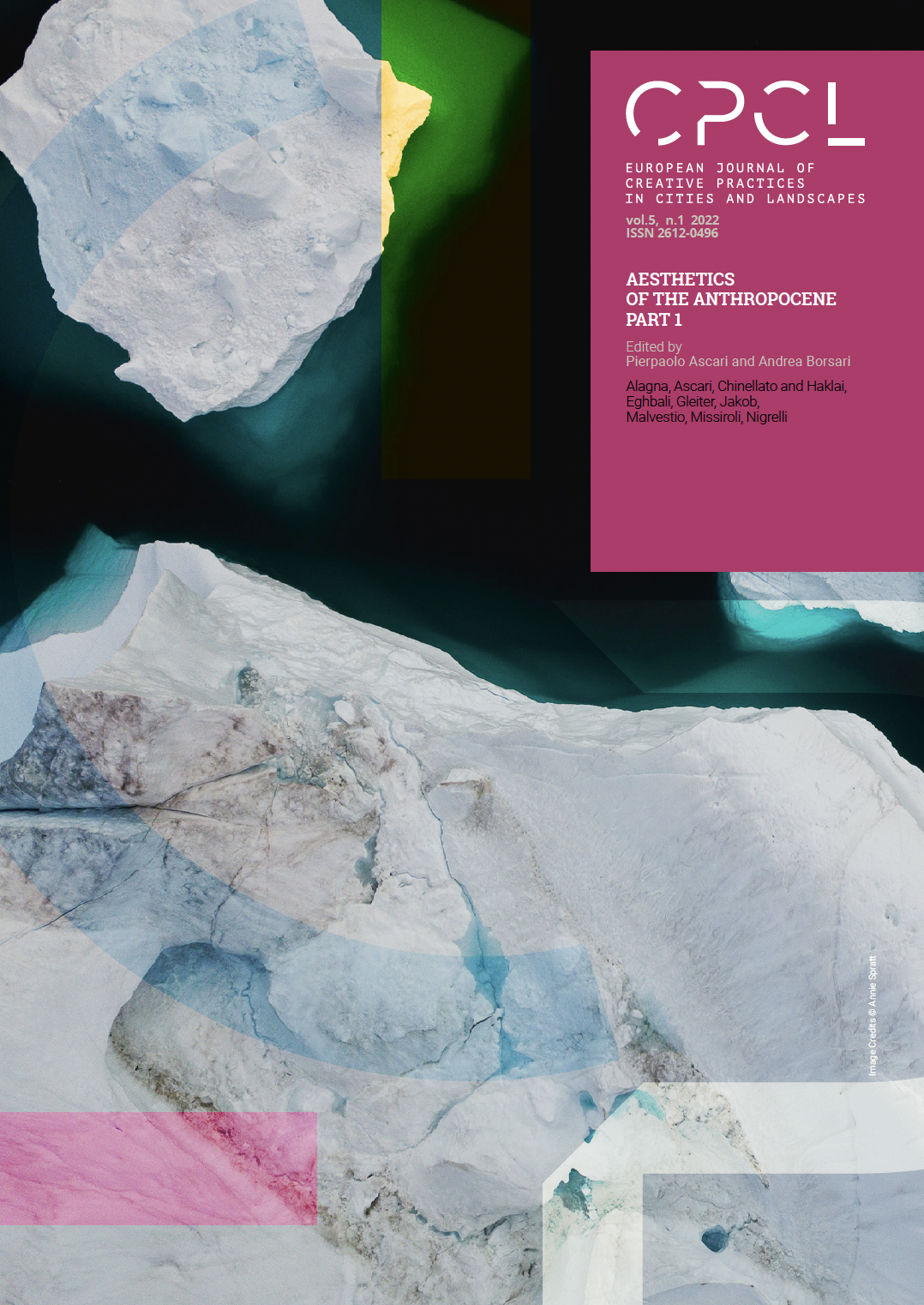Theorizing Eco-Dystopia: Science Fiction, the Anthropocene, and the Limits of Catastrophic Imagery
DOI:
https://doi.org/10.6092/issn.2612-0496/14532Keywords:
science fiction, eco-dystopia, comparative literature, apocalypse, anthropoceneAbstract
This essay considers a peculiar kind of science-fictional writing with environmental concerns that pivots on the imagery of catastrophe and blends the dystopian and the post-apocalyptic traditions. This sub-genre is known as eco-dystopia, which, I argue, merges the catastrophic imagery of the post-apocalyptic tradition with the consequential mode of dystopia. Eco-dystopias rely on the imagery of catastrophe to warn the public about the dangers and the consequences of the Anthropocene. However, such imagery presents strong limitations when used to dramatize and conceptualize the Anthropocene, as it is modeled on catastrophes that have little in common with the current ecological crisis.
References
Armiero, Marco. Wasteocene. Stories from the Global Dump. Cambridge: Cambridge University Press, 2021.
Bennett, Jane. Vibrant Matter. A Political Ecology of Things. Durham, NC: Duke University Press, 2010.
Berry, Geoff. “Afterword: The Utopian Dreaming of Modernity and Its Ecological Cost.” Green Letters 17, no. 3 (2013): 281-294.
Canavan, Gerry and Stanley Robinson, Kim (eds.). Green Planets. Ecology and Science Fiction. Middletown, CT: Wesleyan University Press, 2014.
Cronon, William. “The Trouble with Wilderness, or, Getting Back to the Wrong Nature.” Environmental History 1, no. 1 (1996): 7-28.
Estok, Simon C. The Ecophobia Hypothesis. New York: Routledge, 2018.
Estok, Simon C. “Painful Material Realities, Tragedy, Ecophobia,” in Material Ecocriticism, edited by Serenella Iovino and Serpil Opperman. Bloomington: Indiana University Press, 2014.
Estok, Simon C. “Theorizing in a Space of Ambivalent Openness. Ecocriticism and Ecophobia,” Interdisciplinary Studies in Literature and Environment 16, no. 2 (2009): 203-225.
Fitting, Peter. “Utopia, Dystopia and Science Fiction,” in The Cambridge Companion to Utopian Literature, edited by George Claeys. Cambridge: Cambridge University Press, 2010.
Garrard, Greg. “Environmentalism and the Apocalyptic Tradition.” Green Letters 3, no. 1 (2001): 27-68.
Gregory Claeys. “The Origins of Dystopia: Wells, Huxley and Orwell,” in The Cambridge Companion to Utopian Literature, edited by George Claeys. Cambridge: Cambridge University Press, 2010.
Griffin, Dori. “Visualizing Eco-Dystopia.” Design and Culture 10, no. 3 (2018): 271-298.
Heise, Ursula K. Imagining Extinction. The Cultural Meanings of Endangered Species. Chicago: The University of Chicago Press, 2016.
Heise, Ursula K. “Reduced Ecologies.” European Journal of English Studies 16, no. 2 (2012): 99-112.
Heise, Ursula K. Sense of Place, Sense of Planet. The Environmental Imagination of the Global. Oxford: Oxford University Press, 2008.
Hicks, Heather J. The Post-Apocalyptic Novel in the Twenty-First Century. Modernity beyond Salvage. Basingstoke: Palgrave Macmillan, 2016.
Iovino, Serenella, and Serpil Opperman (eds.). Material Ecocriticism. Bloomington: Indiana University Press, 2014.
Jameson, Fredric. Archaeologies of the Future. The Desire Called Utopia and Other Science Fictions. New York: Verso Books, 2005.
Love, Glen A. “Revaluing Nature: Toward an Ecological Criticism.” Western American Literature 25, no. 3 (1990): 201-215.
Malvestio, Marco. “‘All Our Choices Will Probably Run Out’. La non-fiction post apocalittica di William T. Vollmann.” Ácoma 17 (2019): 160-174.
Malvestio, Marco. Raccontare la fine del mondo. Fantascienza e Antropocene. Milano: nottetempo, 2021.
Malvestio, Marco. “Sognando la catastrofe. L’eco-distopia italiana del ventunesimo secolo.” Narrativa 43 (2021): 31-44.
Morton, Timothy. Dark Ecology. For a Logic of Future Coexistence. New York: Columbia University Press, 2016.
Morton, Timothy. Ecology without Nature. Rethinking Environmental Aesthetics. Cambridge, MA: Harvard University Press, 2007.
Morton, Timothy. Hyperobjects. Philosophy and Ecology after the End of the World. Minneapolis: University of Minneapolis Press, 2013.
Moylan, Tom. Scraps of the Untainted Sky. Science Fiction, Utopia, Dystopia. Boulder, CO: Westview Press, 2000.
Murphy, Patrick. “The Non-Alibi of Alien Scapes: SF and Ecocriticism,” in Beyond Nature Writing: Expanding the Boundaries of Ecocriticism, edited by Karla Armbruster and Kathleen R. Wallace. Charlottesville: University of Virginia Press, 2001.
Palmer, Christopher. “Ordinary Catastrophes: Paradoxes and Problems in Some Recent Post-Apocalypse Fictions,” in Green Planets. Ecology and Science Fiction, edited by Gerry Canavan and Kim Stanley Robinson. Middletown, CT: Wesleyan University Press, 2014.
Schneider-Mayerson, Matthew, and Bellamy, Brent Ryan (eds.). An Ecotopian Lexicon. Minneapolis: The University of Minnesota Press, 2019.
Seed, David (ed.). Imagining Apocalypse. Studies in Cultural Crisis. Basingstoke: Macmillan, 2000.
Stableford, Brian. “Science Fiction and Ecology,” in A Companion to Science Fiction, edited by David Seed. Oxford: Blackwell, 2005.
Stock, Adam. Modern Dystopian Fiction and Political Thought. Narratives of World Politics. New York: Routledge, 2019.
Suvin, Darko. Metamorphoses of Science Fiction. New Haven, CT: Yale University Press, 1979.
Swyngedouw, Erik. “Apocalypse Forever?” Theory, Culture & Society 27, 2010: 213‑32.
Vollmann, William T. No Immediate Danger. Volume One of Carbon Ideologies. New York: Viking, 2018.
Watkins, Susan. Contemporary Women’s Post-Apocalyptic Fiction. Basingstoke: Palgrave Macmillan 2020.
Downloads
Published
How to Cite
Issue
Section
License
Copyright (c) 2022 Marco Malvestio

This work is licensed under a Creative Commons Attribution 4.0 International License.




